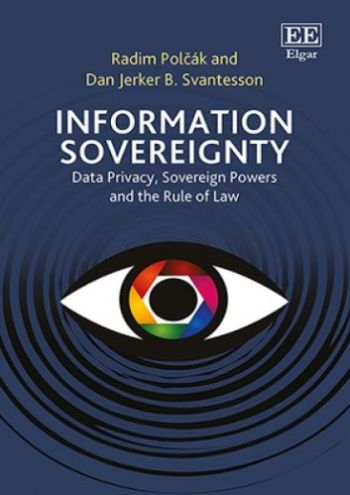
Data not only represent an integral part of the identity of a person, they also represent, together with other essentials, an integral part of the identity of a state. Keeping control over such data is equally important for both an individual and for a state to retain their sovereign existence. This thought-provoking book elaborates on the assumption that information privacy is, in its essence, comparable to information sovereignty. This seemingly rudimentary observation serves as the basis for an analysis of various information instruments in domestic and international law.
Information Sovereignty combines a philosophical and methodological analysis of the phenomena of information, sovereignty and privacy. Providing insights into previously unexplored parallels between information privacy and information sovereignty, it examines cross-border discovery, cybersecurity and cyber-defence operations, and legal regimes for cross-border data transfers, encompassing practical discussions from a fresh perspective. In addition, it offers an accessible overview of complex theoretical matters in the domain of Internet legal theory and international law and, crucially, a method to resolve situations where informational domains of individuals and/or states collide.
This pioneering state-of the-art assessment of information law and legal theory is a vital resource for students, academics, policy-makers and practitioners alike, seeking a guide to the phenomena of information, sovereignty and privacy.